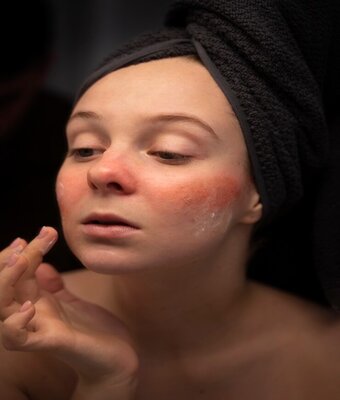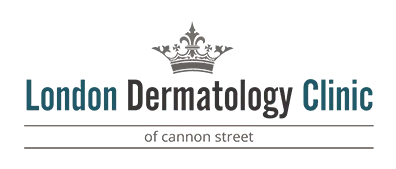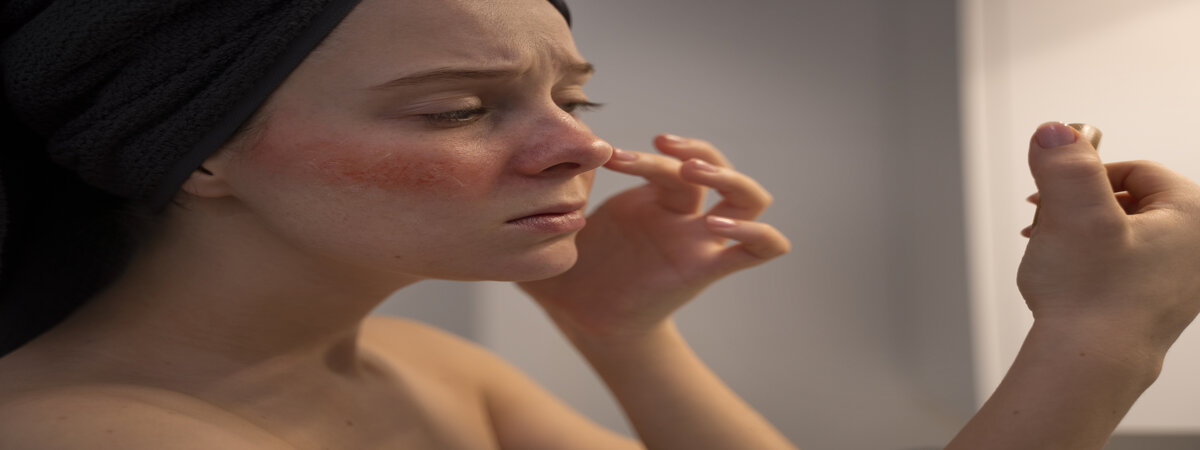
Understanding Rosacea: More Than Just Redness
Rosacea is a chronic skin condition, often primarily associated with facial redness, but its complexity extends far beyond what many may realize, impacting individuals psychologically and socially. Seeking early treatment for rosacea can yield significant benefits.
Understanding Rosacea
Rosacea, a persistent skin ailment, manifests as facial reddening and flushing, accompanied by various symptoms such as a burning sensation, small raised spots, and visible blood vessels. It begins with flare-ups or “episodes” of facial flushing, which can intensify over time. Learn more about rosacea and the treatments available at the London Dermatology Clinic.
About Rosacea
Rosacea primarily affects individuals between the ages of 30 and 50, with a higher propensity among women. Those with fair skin are particularly susceptible to developing rosacea. This condition arises from the enlargement of small blood vessels in the skin, resulting in the following symptoms:
Frequent blushing
Persistent redness of the facial skin
Increased visibility of blood vessels on the face
Appearance of acne-like spots
Redness and swelling of the nose
In severe cases, rosacea can cause a stinging or burning sensation on the face, accompanied by bloodshot, watery, and irritated eyes.
Rosacea Treatment
Recognizing the potential physical and emotional distress associated with rosacea symptoms, our dedicated dermatologists are committed to providing comprehensive rosacea treatment solutions. At The London Dermatology Clinic, we understand that managing rosacea is a multifaceted endeavor, and we offer a diverse array of treatment options tailored to your specific needs. Our expertise allows us to effectively combine these treatments, ensuring the most successful outcomes in the battle against rosacea.
Topical and Oral Antibiotics for Rosacea
Symptoms of rosacea can be managed with antibiotics. Our consultant dermatologists may recommend both oral antibiotics and the application of topical creams to the affected area. These creams alleviate soreness, while the tablets have anti-inflammatory properties to reduce redness and swelling.
Laser Treatment for Rosacea
In certain cases, laser therapy can help reduce the redness associated with rosacea. Additionally, it is crucial to use facial products that do not exacerbate the condition. Our dermatologists in London provide ongoing guidance to help you manage your symptoms, ensuring that rosacea does not control your life or diminish your confidence. We also offer advice to prevent future outbreaks.
FAQ
Is rosacea treatment suitable for all skin types and tones?
Yes, rosacea treatment options can be tailored to accommodate various skin types and tones. Our dermatologists will assess your unique skin characteristics and customize a treatment plan accordingly.
Are there any side effects associated with rosacea treatments?
While rosacea treatments are generally safe, some individuals may experience temporary side effects such as mild redness, dryness, or a tingling sensation at the treatment site. These effects are typically short-lived and can be discussed with your dermatologist.
How long does it take to see results from rosacea treatment?
The timeline for seeing results can vary depending on the specific treatment used and the severity of your rosacea. Some patients may notice improvement within a few weeks, while others may require more time. Your dermatologist will provide guidance on what to expect.
Can rosacea be completely cured with treatment?
Rosacea is a chronic condition, and while treatments can effectively manage its symptoms, it may not be completely cured. However, with proper care and ongoing management, most individuals can achieve significant improvement in their skin’s appearance and overall comfort.
Do I need to avoid certain foods or activities during rosacea treatment?
Your dermatologist may recommend avoiding certain triggers known to exacerbate rosacea symptoms, such as spicy foods, alcohol, and excessive sun exposure. However, specific dietary and lifestyle recommendations will depend on your unique case.
Is it possible for rosacea to worsen over time despite treatment?
In some cases, rosacea may progress despite treatment. This emphasizes the importance of regular follow-up appointments with your dermatologist to adjust your treatment plan as needed and to monitor any changes in your condition.


